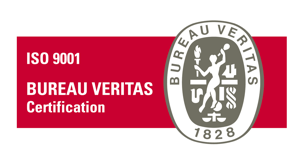Article

Supplementary Protection Certificates (SPC): a new IP right to come?
This article is also available in French.
In January 2022, the UP/UPC (Unitary Patent and Unified Patent Court) took a major step toward its entry into force and pleads for a new unitary system of SPCs (supplementary protection certificates).
On November 25, 2020, the European Commission published its new action plan on intellectual property1 (IP).
One of the objectives of this plan is to improve the protection of IP rights, in particular by modernizing existing systems or reducing the complexity thereof.
Among the solutions contemplated, the European Commission is considering the possibility of creating a unified supplementary protection certificate (SPC) grant mechanism and/or a unitary SPC title.
An SPC is a national title. An SPC application must therefore be filed with the national office of each of the member states to obtain protection throughout the territory of the European Union (EU), a burdensome process.
In all EU countries, the conditions for obtaining Supplementary Protection Certificates are governed by the same Regulations (EC) No. 469/2009 (for medicinal products) and (EC) No. 1610/96 (for plant protection products). However, in practice, the application of these Regulations differs and disparities exist in the different member states2, for example with regard to granting procedures, the length of the examination, or SPC expiry date. The outcome of the examination may also differ from one country to another, which can create legal uncertainty.
For example, a Supplementary Protection Certificate application was refused in France for the combination ‘ezétimibe + atorvastatin, whereas an SPC was granted in Belgium for the same combination3.
Moreover, disparities and uncertainties also remain between member states regarding health products based on innovative technologies, such as medical devices. For example, patent offices in Denmark, France, Italy, Poland, Portugal, Spain, and the United Kingdom consider that medical devices are not products within the meaning of Supplementary Protection Certificate Regulation, whereas in Germany or The Netherlands Supplementary Protection Certificates for medical devices have been granted4.
The question as to whether third-party observations are taken into account also differs from one member state to another. Thus, French Law does not allow third-party observations for Supplementary Protection Certificate applications, whereas patent offices in the United Kingdom, Germany, and Denmark allow them5.
Furthermore, Supplementary Protection Certificate expiry dates based on the same European Patent may differ by few days. Thus, French SPCs expire before German SPCs, and the latter expire before Greek SPCs. This creates distortion between the member states.
A unitary Supplementary Protection Certificate would thus simplify the SPC system within the EU and ensure consistency between all member states.
Plasseraud IP Patents is closely following the development of the possible creation of this new title of unitary SPC and will provide you with information in this regard as and when it becomes available.
Read more :
Only in French :
- Podcast : Comment prolonger la durée de vie des brevets ? Grâce aux Certificats Complémentaires de Protection !
- L'extension pédiatrique pour un Certificat Complémentaire de Protection (CCP) en Suisse
1https://ec.europa.eu/docsroom/documents/43845?locale=en
2https://eur-lex.europa.eu/legal-content/EN/TXT/?uri=CELEX:52020SC0292
3French patent office rejected the SPC application n°FR14C0068, considering that the claims of the basic patent did not relate necessarily and specifically to the combination ‘ezétimibe + atorvastatin'. In Belgium, this point was not raised during the proceedings of SPC n°2014C/056.
4Table 18.7, Study on the Legal Aspects of Supplementary Protection Certificates in the EU, Final Report, Annexes I-VI, Mai 2018, München/Bruxelles
5Annex I, Study on the Legal Aspects of Supplementary Protection Certificates in the EU, Final Report, Annexes I-VI, Mai 2018, München/Bruxelles





























